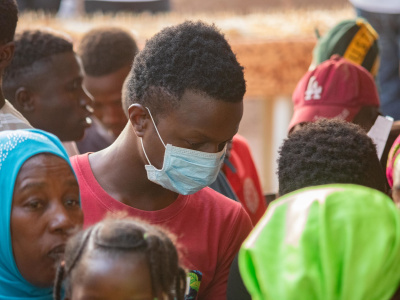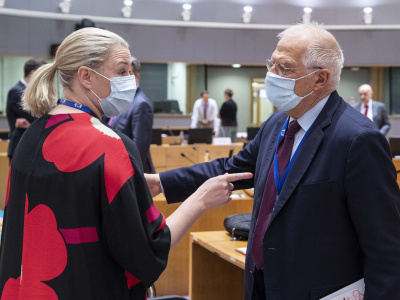
The impact of COVID-19 on remittances for development in Africa
Remittances, which form an integral part of development finance, are currently under threat by COVID-19. Amanda Bisong, Pamella Eunice Ahairwe and Esther Njoroge look at immediate and medium-term solutions to filling the development financing gap in African countries highly dependent on remittances.
Summary
Remittance flows, which are an integral part of development finance, proved relatively resilient during the 2008 financial crisis and the 2014 Ebola epidemic. However, they are currently under threat by the COVID-19 pandemic. Lockdown measures implemented in host countries have caused many migrants to lose their jobs, consequently reducing remittance flows to developing countries. In 2020, the World Bank estimates a historical decline in global remittances of US$110 billion, with sub-Saharan Africa (SSA) expected to experience a decline of about 23.1%.
Individuals, households, businesses and nations that are highly dependent on remittance flows are already suffering a huge financial blow. The estimated sharp fall in remittances will undermine developing countries’ ability to deal with the COVID-19 pandemic, let alone their ability to achieve the Sustainable Development Goals. This paper stresses the importance of filling the development financing gaps that have been widened by shrinking remittances and suggests adaptations and increases in official development assistance (ODA) as an immediate solution to cushion some of the short-run effects of the COVID-19 pandemic.
The paper also highlights the short- and medium-term measures that policymakers and development partners in both sending and receiving countries should take to lessen the decline in remittance flows. First, we recommend policymakers in remittance-sending countries to either make available or relax stringent identification requirements demanded of migrants for them to remit, incentivise the use of digital platforms, and protect migrants from job losses. Second, we call on policymakers in remittance-receiving countries to ensure remittance-providing centres are in service despite lockdown measures, to promote digital financial inclusion by expanding money operator networks, and to eliminate or reduce transaction fees on remittances. Finally, we recommend private actors to embrace the digital revolution in Africa to make remitting easier and more convenient.




